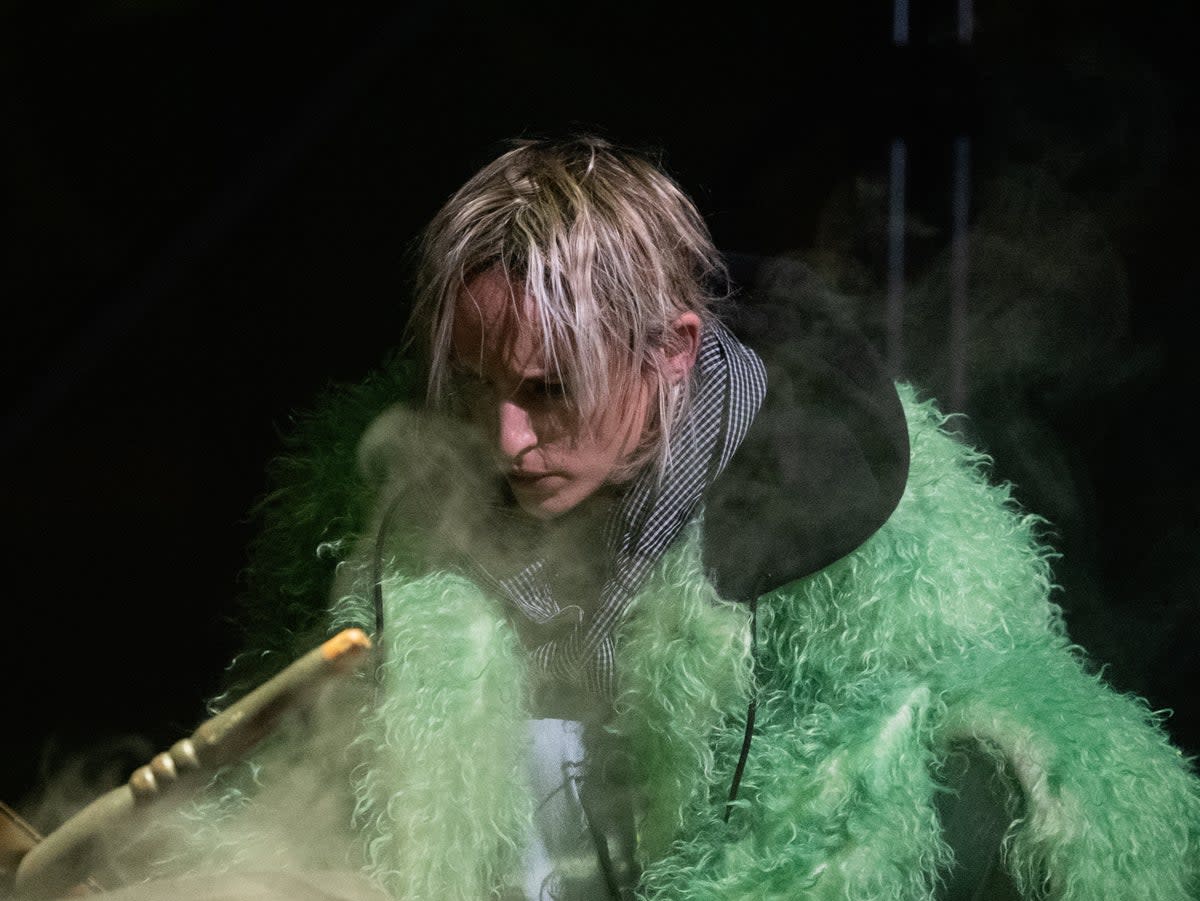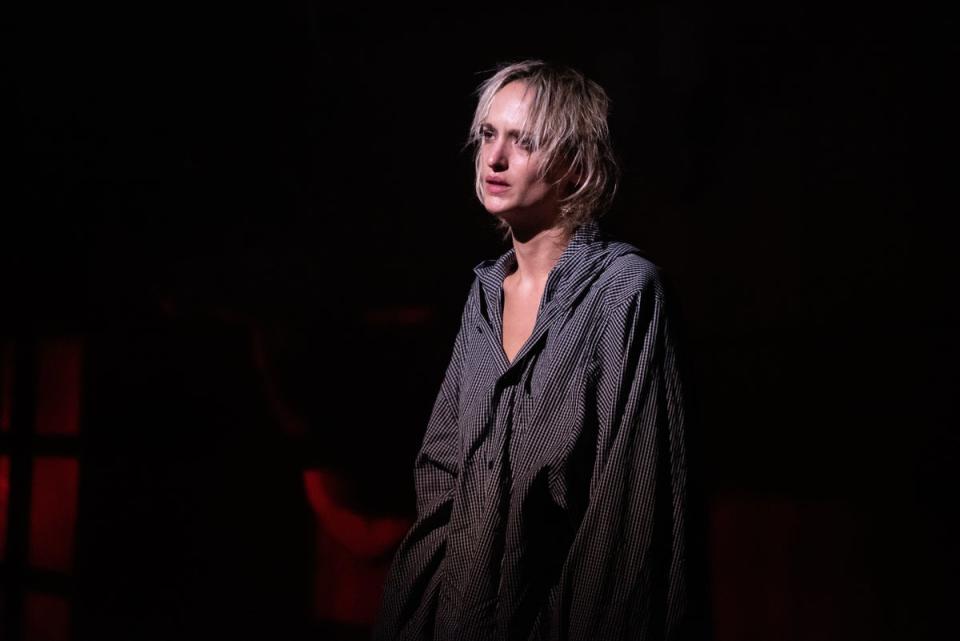Last Days review: Extraordinary Kurt Cobain opera avoids all the clichés Nirvana fans might have predicted

- Oops!Something went wrong.Please try again later.
- Oops!Something went wrong.Please try again later.
With mic pressed to lips and accompanying himself on guitar, Kurt Cobain made millions with his lugubrious ditties of love, loss, dereliction, and disintegration with an undertow of masochistic violence. And his unquiet ghost still walks abroad.
Born in 1967, he grew up loving The Beatles but wanting to emulate the Sex Pistols, and, after abortive attempts to become an artist, he found his niche as guitarist-singer-songwriter for Nirvana, the rock band he formed. Nirvana set the tone for “grunge” music, and became the rallying point for Cobain’s generation in America. His fanbase was vast, as was his musical influence, and also his wealth.
But psychologically, he struggled to cope. Abused as a child and confused as an adolescent – at one point passionately espousing Christianity – he married the singer Courtney Love, but the marriage was hell on wheels. Exhibiting all the symptoms of paranoia, Cobain gravitated to heroin, and never got off it. Discharging himself from a detox unit in 1994, he disappeared, and a few days later, he was found dead in his Seattle mansion, a shotgun in his hands.
Since then, his miserabilist songs have become embedded ever more firmly in popular culture, while his story has been told and retold in print and in film, more often in celebration than as a cautionary tale. His journal ends with the challenging words: “Please read my diary. Look through my things, and figure me out.”
In 2005, the filmmaker Gus Van Sant – best known for his hauntingly beautiful My Own Private Idaho – made a fictionalised arthouse movie entitled Last Days. It chronicled Cobain’s final disappearance: 100 minutes in which nothing happens, beyond muttering and grunts from the protagonist as he stumbles about in his domain. Boring? You can say that again. But weirdly, some people love that movie, and one of those people is the French star Agathe Rousselle, who claims to have seen it 15 times.
Enter composer Oliver Leith, director Matt Copson, and choreographer Anna Morrissey, who have turned Van Sant’s film into an opera with Rousselle in the leading (non-singing) role. When they asked Van Sant for a copy of his script, his reply was simply “Do your own thing” – and they’ve done that. So, here we are, in a beautiful little wooden theatre in the bowels of the Royal Opera House, watching the fruits of a collaboration between the Opera House and the Guildhall School of Music & Drama.
The surprise is that this show avoids all the clichés one might have predicted. Nobody tries to reproduce Cobain’s voice (Rousselle limits herself to a single snarl of rage), and none of his trademark songs are trotted out. There is a shotgun, but it hangs on the wall and is not fired.
What this talented team have created is extraordinary, something visually and vocally closer to the Japanese aesthetic than to anything Western, while the closing scenes suggest a Bach chorale put tenderly through a screen of ecstatic atonality. The plot is a non-plot.
But it feels as though a lot is happening: the work is full of mysteries, which derive their power through not being explained. Shuffling distractedly round his house, the protagonist is besieged by housemates and sundry visitors, but persists in hiding from them, and finally fades away. At one point, the house is taken over for a black mass, and is then trashed; it seems appropriate that the libretto should veer between impenetrability and quasi-Christian chant.

Some visitors bring comedy, including a clarion-voiced Mormon couple and a high-soprano DHL delivery man, who won’t go away until his packages are signed for. A magnificently sonorous housemate, who finally doubles as a messenger of death (sung by the Welsh bass Sion Goronwy), confers majestic gravity on the proceedings. All six of the soloists – each playing dual roles – deserve accolades.
Oliver Leith’s score is a sonic tapestry interweaving delicate instrumental effects, “found” sounds, and a cappella vocal timbres. The result feels random, but the work is finely wrought, particularly as rendered here by the 12 Ensemble string orchestra under Jack Sheen’s direction. It is this team’s great achievement that Grace Smart’s down-home domestic set, lit by Prema Mehta, should feel by the end like a darkly sacred space in which a human sacrifice has been enacted. It will be fascinating to see what these people do next.

